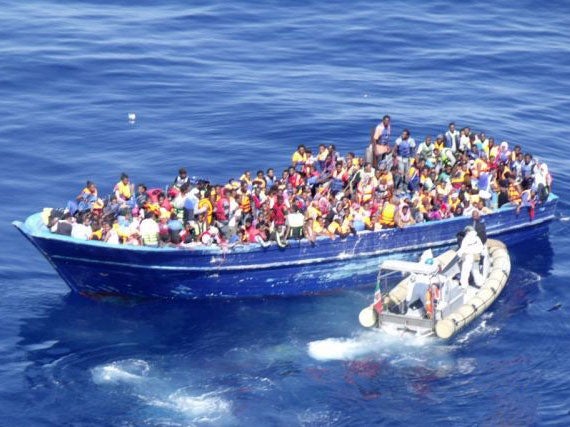4,400 migrants rescued in the Mediterranean in a single day, say Italian Coast Guard
A record number of migrants are expected to make the dangerous crossing this year

Italy's coast guard said it co-ordinated the rescue of some 4,400 migrants in a single day, a record-setting number, as smugglers took advantage of ideal sea conditions off Libya to launch a fleet of overcrowded, unseaworthy boats.
The coast guard said 22 rescue operations were carried out on Saturday for motorised rubber dinghies and fishing boats, all crammed with migrants desperate to reach Europe's southern shores.
Italian coast guard, navy and border police boats pitched in, as did Norwegian and Irish naval vessels deployed in a European patrol-and-rescue force.
Boats in distress use satellite phones to call coast guard rescuers or are spotted by patrolling Italian military aircraft.
So far this year, some 110,000 migrants have been rescued off Libya and brought to southern Italian ports.
A record number of migrants are expected to attempt the dangerous Mediterranean crossing this year.
According to the International Organisation for Migration (IOM), at least 2,000 people have died making the voyage this year.
Stranded migrants spend night on rocks
Show all 9Some die by drowning in the sea, after their crude and unseaworthy vessels sink. There have also been reports of people suffocating in the ships' holds, after they are packed in by people smugglers.
William Lacy Swing, the director general of the IOM, said: "It is unacceptable that in the 21st century people fleeing from conflict, persecutions, misery and land degradation must endure such terrible experiences in their home countries, not to mention en route, and then die on Europe’s doorstep."
Subscribe to Independent Premium to bookmark this article
Want to bookmark your favourite articles and stories to read or reference later? Start your Independent Premium subscription today.

Join our commenting forum
Join thought-provoking conversations, follow other Independent readers and see their replies